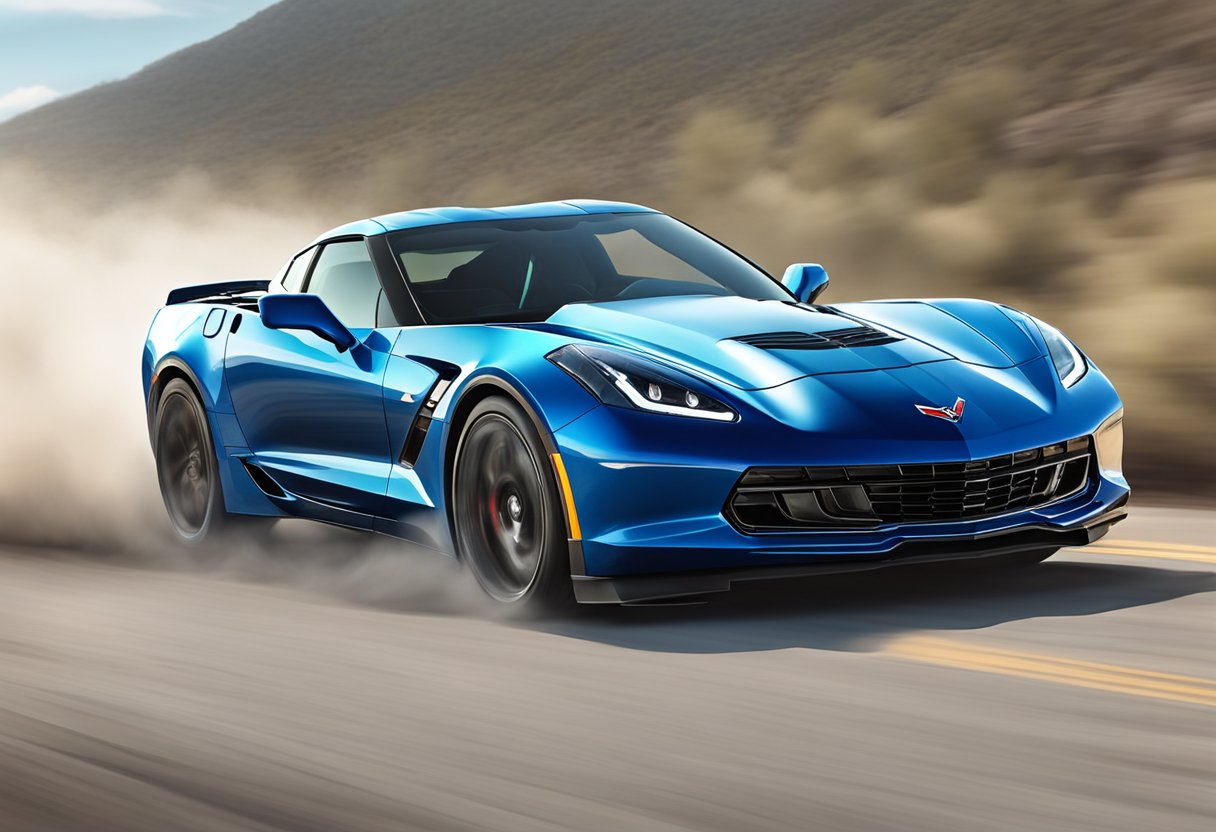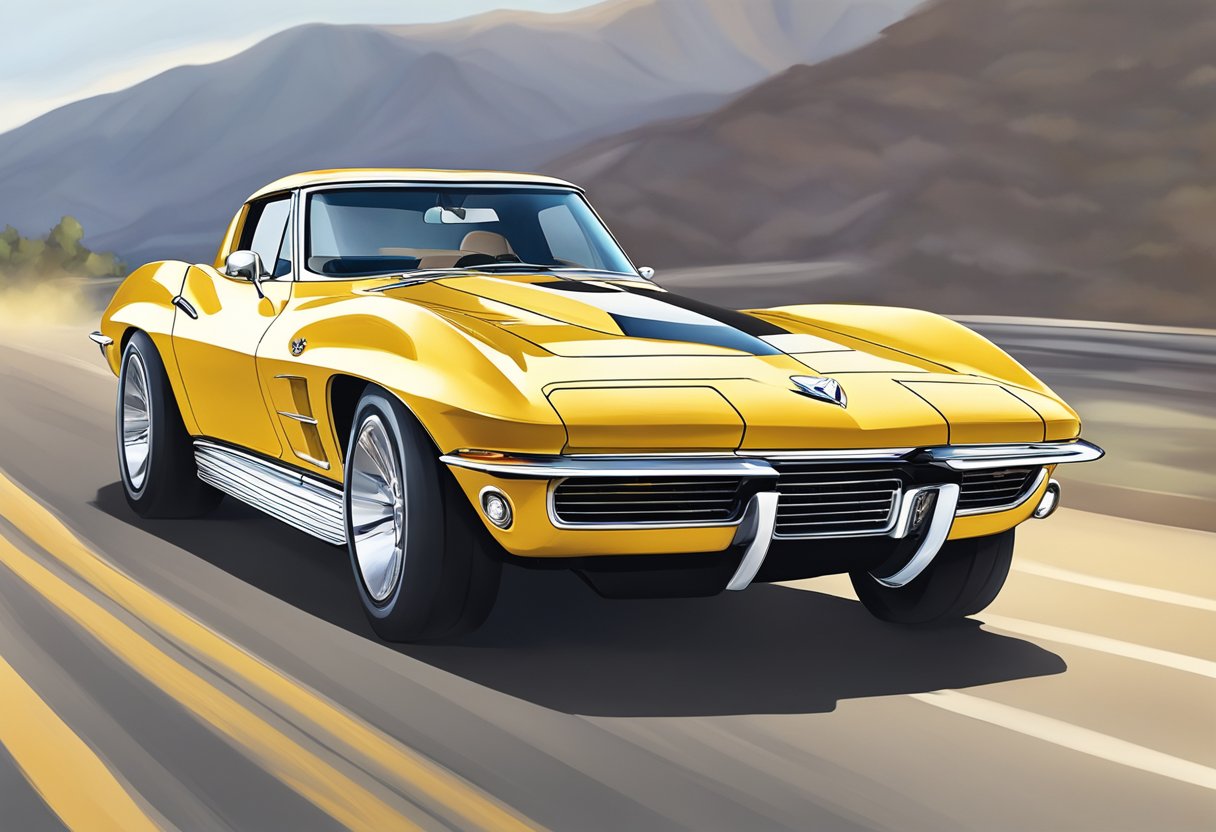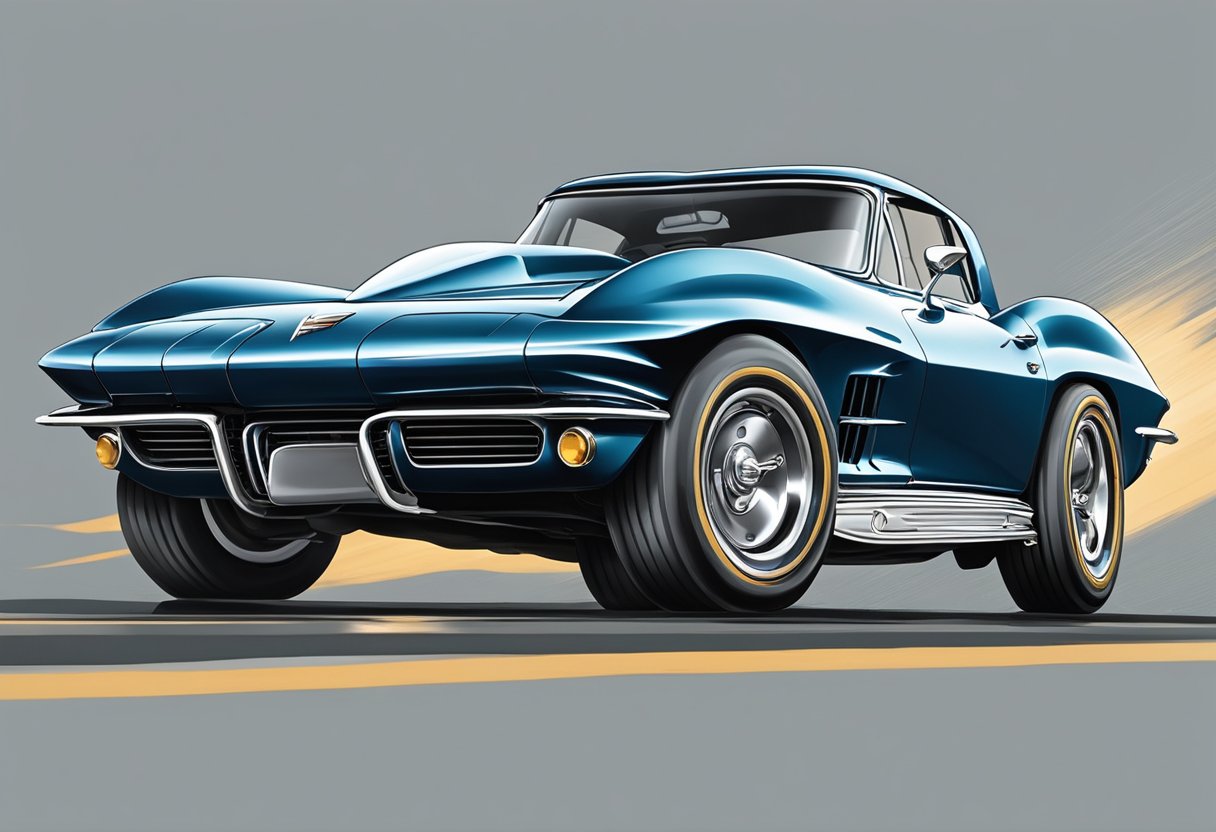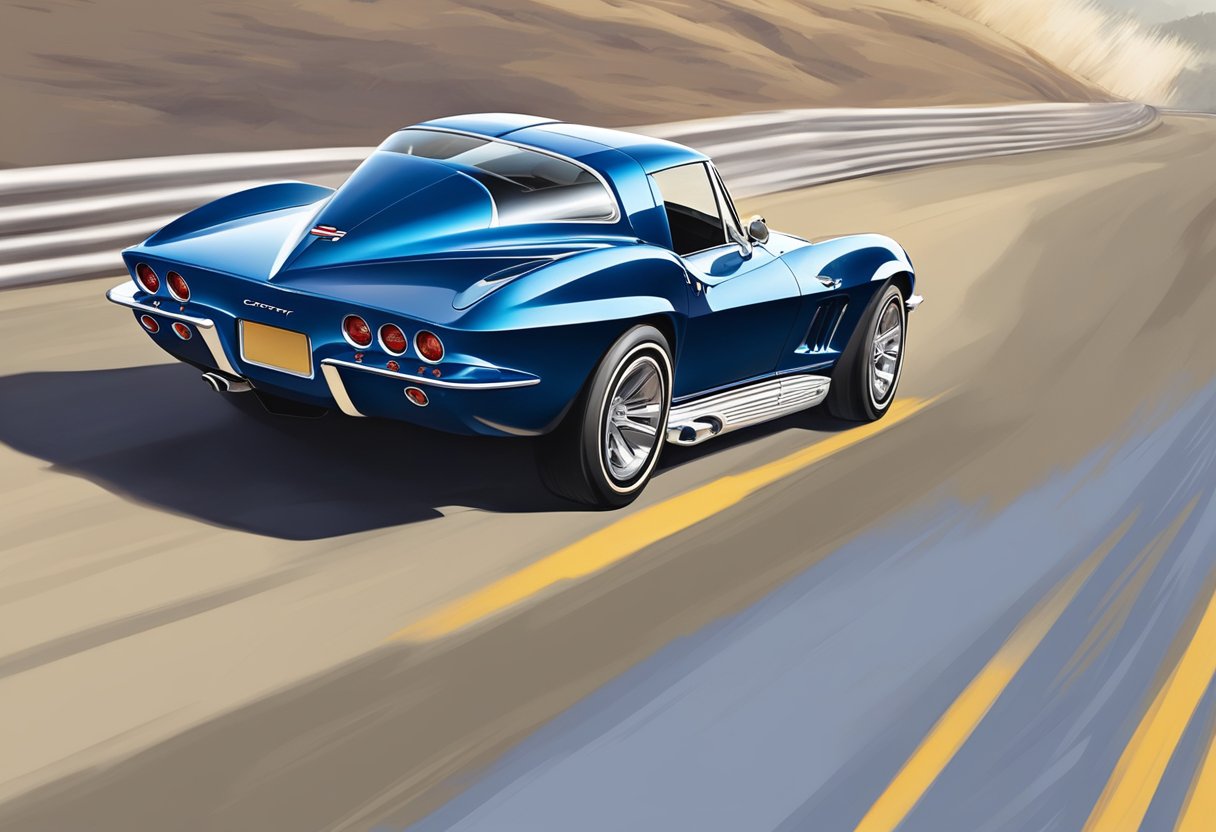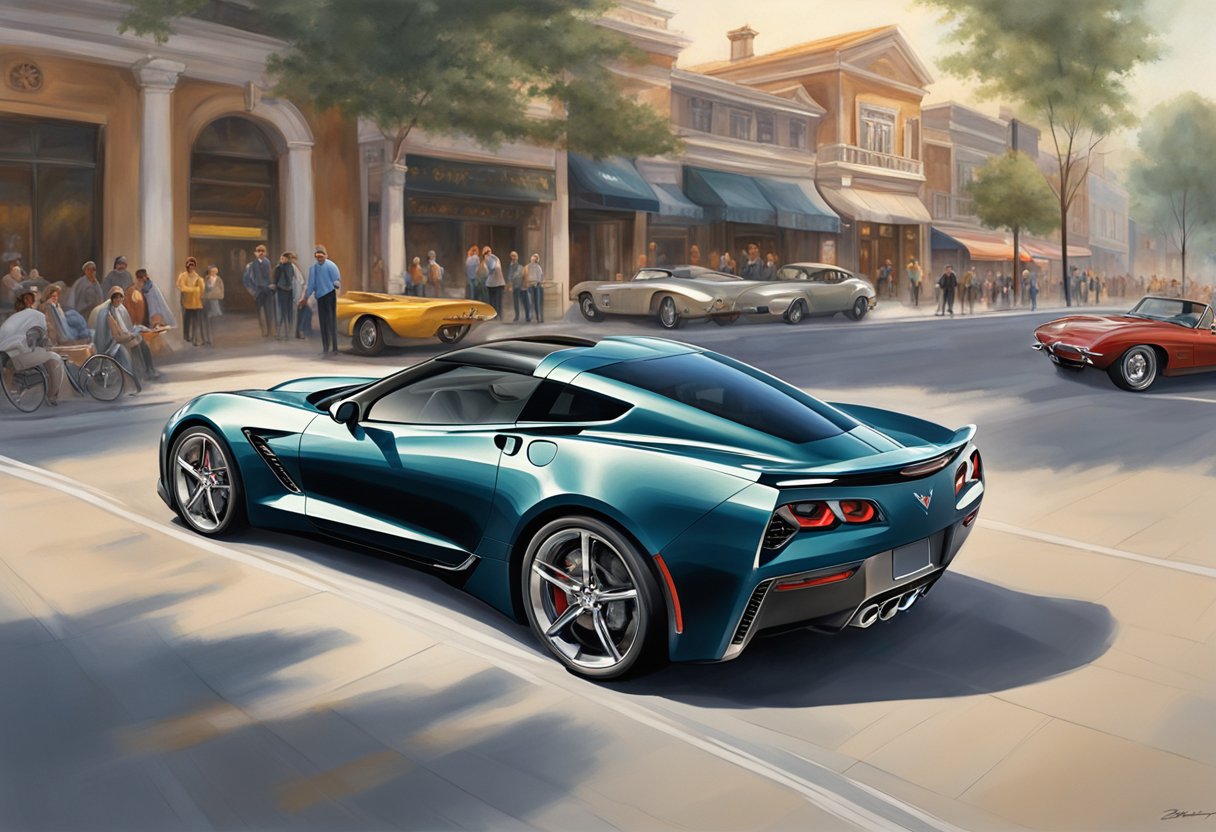If you’re a fan of American muscle cars, chances are you’ve heard of the Chevrolet Corvette. This iconic sports car has been around since 1953 and has undergone numerous transformations over the years. While many people consider the Corvette to be a true muscle car, there are others who argue that it doesn’t quite fit the bill. In this article, we’ll explore the legend of the Corvette and examine whether or not it can truly be considered a muscle car.
The first thing to consider when discussing the Corvette’s status as a muscle car is its design. While muscle cars are typically characterized by their large, powerful engines, they also tend to have a certain look and feel. They’re often big, heavy, and designed for straight-line speed. The Corvette, on the other hand, has always been a sleek and nimble sports car, designed for performance on the track as well as the street. So, while the Corvette certainly has plenty of power under the hood, some people argue that it’s not a true muscle car because it doesn’t fit the traditional mold.
Despite these arguments, there are many who firmly believe that the Corvette is indeed a muscle car. After all, it has a long history of high performance and speed, and its engines have always been a major selling point. Additionally, the Corvette has been used in racing and drag competitions for decades, further cementing its reputation as a powerful and capable machine. So, whether or not you consider the Corvette to be a true muscle car may depend on your personal definition of the term.
The Evolution of the Chevrolet Corvette
Origins and Early Generations
The Chevrolet Corvette was introduced in 1953 as a two-seat sports car, marking the first time that Chevrolet had produced a car of this type. The early generations of the Corvette were designed to be stylish and attractive, with a focus on comfort and convenience.
The first generation of the Corvette, known as the C1, was produced from 1953 to 1962. It featured a fiberglass body, a six-cylinder engine, and a two-speed automatic transmission. The C1 was designed to be a sports car that was also comfortable enough for daily driving.
The second generation of the Corvette, known as the C2, was produced from 1963 to 1967. It was a more powerful and performance-oriented car than the C1, featuring a V8 engine and a four-speed manual transmission. The C2 was also the first Corvette to feature hidden headlights, which became a signature design element of the car.
Transition to a Performance Icon
In the late 1960s and early 1970s, the Corvette began to transition from a stylish sports car to a true performance icon. The third generation of the Corvette, known as the C3, was produced from 1968 to 1982 and featured a range of high-performance engines and transmissions.
The C3 was also the first Corvette to feature a T-top roof, which allowed for open-air driving while still providing some protection from the elements. The C3 was also notable for its iconic design, which featured a long hood, a short rear deck, and flared fenders.
In the years since the C3, the Corvette has continued to evolve and improve, with each new generation pushing the boundaries of performance and technology. Today, the Corvette is widely regarded as one of the greatest sports cars ever produced, with a legacy that spans more than six decades.
Defining Muscle Cars
Muscle cars are a staple of American automotive culture, and the Chevrolet Corvette is undoubtedly one of the most iconic examples of this genre. But what exactly defines a muscle car?
Characteristics of Muscle Cars
There are several key characteristics that define a muscle car. These include:
-
High-performance engines: Muscle cars are typically powered by large, high-displacement V8 engines that produce a lot of horsepower and torque.
-
Rear-wheel drive: Most muscle cars are rear-wheel drive, which helps to provide better traction and handling characteristics.
-
Aggressive styling: Muscle cars have a distinctive look that is characterized by bold lines, aggressive grilles, and muscular fenders.
-
Affordable price: Muscle cars are designed to be affordable, high-performance vehicles that are accessible to the average driver.
Comparison with Pony Cars and Sports Cars
While muscle cars share some similarities with pony cars and sports cars, there are some key differences. Pony cars, such as the Ford Mustang and Chevrolet Camaro, are smaller and more affordable than muscle cars, but still offer impressive performance and handling. Sports cars, on the other hand, are designed primarily for handling and agility, and often feature smaller, more high-tech engines.
In conclusion, while there is some overlap between muscle cars, pony cars, and sports cars, each genre has its own unique characteristics and appeal. The Chevrolet Corvette, with its powerful V8 engine, rear-wheel drive, and aggressive styling, is a true muscle car that embodies the spirit of American automotive culture.
Are Chevy Corvettes also prone to engine power issues like the Malibu?
Yes, Chevy Corvettes can also experience engine power issues similar to the Chevy Malibu. It’s important to stay proactive with regular maintenance to prevent any potential problems with the chevy malibu engine power. Keeping up with routine care and addressing any warning signs can help avoid major issues down the road.
Corvette’s Engineering and Performance
Engine Specifications
When it comes to the Chevrolet Corvette, the engine is the heart of the car. The Corvette has a long history of powerful engines that deliver impressive performance. The current generation of Corvettes comes with a 6.2-liter V8 engine that produces up to 495 horsepower and 470 lb-ft of torque. This engine is paired with an eight-speed automatic transmission or a seven-speed manual transmission.
The Corvette’s engine has been designed to deliver power and performance, while also being efficient. The engine features direct injection, variable valve timing, and cylinder deactivation technology, which helps to improve fuel efficiency. The Corvette also has an active fuel management system that can shut off four of the eight cylinders when cruising at highway speeds, further improving fuel economy.
Handling and Drivability
The Corvette’s engineering goes beyond just the engine. The car has been designed to deliver a balanced and responsive driving experience. The Corvette’s suspension has been tuned to provide excellent handling and stability, while also delivering a comfortable ride.
The Corvette also features a variety of performance-enhancing technologies, such as magnetic ride control, which adjusts the suspension in real-time to provide optimal handling and ride comfort. The car also has a performance traction management system, which helps to optimize traction and stability in various driving conditions.
The Corvette’s handling and drivability are further enhanced by the car’s lightweight construction. The car’s body is made from lightweight materials, such as carbon fiber and aluminum, which helps to reduce weight and improve performance.
In conclusion, the Chevrolet Corvette is a true muscle car that delivers impressive performance and engineering. The car’s powerful engine, advanced technologies, and lightweight construction all work together to deliver a balanced and responsive driving experience. Whether you’re looking for a car to take to the track or just want a fun and powerful car for the road, the Corvette is a great choice.
Can a Muscle Car like the Chevrolet Corvette Experience PCM Failure?
Yes, a muscle car like the Chevrolet Corvette can experience car PCM failure symptoms. Common signs include engine stalling, poor fuel economy, and difficulty starting the engine. When these symptoms arise, it’s important to have the car’s PCM system checked and repaired by a professional mechanic.
Cultural Impact and Iconography
Corvette in Motorsports
The Chevrolet Corvette has a storied history in motorsports, with its performance and sleek design making it a favorite among racing enthusiasts. The Corvette’s success in racing has helped to solidify its status as a true muscle car.
The Corvette has competed in various racing events, including the 24 Hours of Le Mans, the Daytona 500, and the SCCA Trans-Am series. In 1960, the Corvette won its class in the 24 Hours of Le Mans, cementing its place in racing history. The Corvette has also been a popular choice for drag racing, with its powerful engine and lightweight design making it a formidable opponent on the track.
The Corvette in Popular Media
The Chevrolet Corvette has also had a significant impact on popular culture. It has been featured in numerous films, television shows, and music videos, further solidifying its status as an icon.
One of the most notable appearances of the Corvette in popular media was in the 1986 film “Top Gun,” where Tom Cruise’s character Maverick drives a 1985 Corvette. The Corvette has also appeared in other films such as “Transformers,” “Rush Hour,” and “Bad Boys.”
In addition to its appearances in films, the Corvette has also been featured in music videos. Prince’s “Little Red Corvette” and Bruce Springsteen’s “Racing in the Street” both reference the car, further adding to its cultural significance.
Overall, the Chevrolet Corvette’s success in motorsports and its appearances in popular media have helped to solidify its status as a true muscle car and an icon of American automotive design.
Public Perception and Market Position
When it comes to muscle cars, the Chevrolet Corvette is often a topic of debate. Some enthusiasts argue that it is not a true muscle car, while others firmly believe that it is. However, public perception and market position tell a different story.
The Corvette has been a staple in American car culture since its introduction in 1953. Over the years, it has evolved into a high-performance sports car that is admired by many. Its sleek design, powerful engine, and impressive handling have made it a favorite among car enthusiasts.
In terms of market position, the Corvette has consistently been positioned as a sports car. It is often compared to other high-performance sports cars such as the Porsche 911 and the Audi R8. However, it is also often compared to muscle cars such as the Ford Mustang and the Dodge Challenger.
Despite the comparisons, the Corvette has always been marketed as a sports car. Its focus on performance, handling, and technology sets it apart from traditional muscle cars. While it may share some similarities with muscle cars, it is not marketed as a traditional muscle car.
Overall, public perception and market position suggest that the Chevrolet Corvette is not a true muscle car. While it may share some similarities with muscle cars, its focus on performance and technology sets it apart from traditional muscle cars.
As an Amazon Associate we earn from qualifying purchases.








